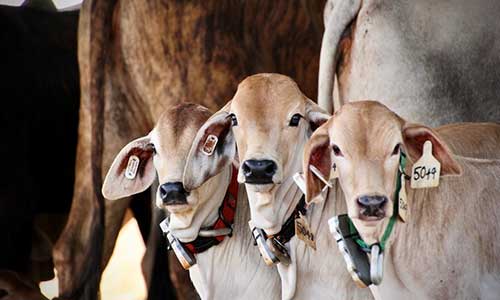Remotely detecting cow and calf behaviours to alert producers to key production outcomes
Remotely monitored devices (such as accelerometers and GPS trackers) are being used to detect maternal behaviours associated with calf suckling events in first-lactation cows as part of the uSuckle project at the Katherine Research Station.
The department leads the project in partnership with Queensland Alliance for Agriculture and Food Innovation, the University of Queensland and CSIRO.
Funded by Meat and Livestock Australia, the focus of this research is to test and develop the concept that remote monitoring of cow and calf behaviours can alert producers to key production outcomes (such as a successful calving event), suckling length and patterns, or, if suckling prematurely stops, a possible calf loss event.
Read more about the project in the NT Rural Review.

